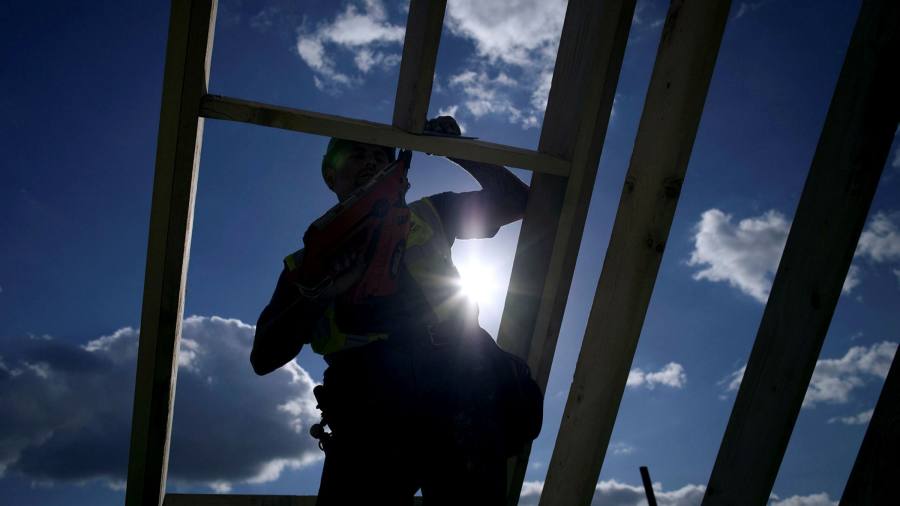[ad_1]
Housebuilder Persimmon has set aside £75m to replace potentially dangerous cladding on its buildings, as the issue of who should foot the multibillion pound bill for the crisis comes to a head in Westminster.
The FTSE 100 company said that the money would cover the costs of fixing up to 26 buildings affected by cladding issues, which have come to light in the aftermath of the 2017 fire at Grenfell Tower that killed 72 people.
An inquiry into the fire established that cladding and insulation used on the block had helped the blaze to spread, leading to questions about the materials used on similar blocks and the broader reliability of building regulations under which they had been signed off as safe.
The resulting crisis has affected millions of homeowners, who are unable to sell their properties because mortgage lenders cannot establish whether they are safe.
By some estimates it will cost as much as £15bn to fix all those buildings clad in potentially dangerous materials, and ministers are working on a funding package that could be announced as soon as today.
That package is likely to be topped up by developer contributions. Persimmon, which made more than £1bn in pre-tax profits in 2019, said it had always complied with building regulations. But chairman Roger Devlin said that the company had “a clear duty to act to address this issueâ€.
“This is a decision which we believe is not only right for residents but also the right thing for us to do as one of the leading housebuilders in the UK,†he added.
Barratt Developments, another FTSE 100 housebuilder, has also set aside money to address cladding issues on its developments. Last week Barratt became the first developer to call for a levy on builders to help fund repair works.
“We do not believe that leaseholders should have to pay for retrospective action to remediate or replace cladding systems on their buildings,†said David Thomas, Barratt’s chief executive.
“Housebuilders, as well as the broader industry involved in the building process, have a collective responsibility to help,†he added.
Housing developers have been unlikely winners during the pandemic, boosted by government stimulus measures designed to get the market moving and changing buyer preferences.
The UK’s three largest builders, Persimmon, Barratt and Taylor Wimpey, have dramatically increased their net cash in the past year, holding more than £3bn between them.
In a further sign of the recent strength of the housing market, FTSE 250 builder Redrow announced on Wednesday that its pre-tax profits increased 11 per cent to £174m in the six months to December 27.
Chief executive Matthew Pratt credited “pent-up demand from the first national lockdown, the introduction of the stamp duty holiday and the impending end of the Help to Buy scheme for existing homeowners,†for the strong results.
The company’s net cash increased to £238m, from £14m a year earlier.
Redrow made no mention of the cladding crisis in its statement.
[ad_2]
Source link






